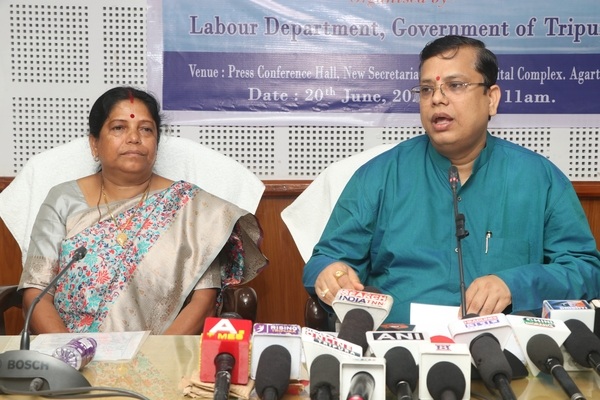
In a major step towards improving the welfare of tea garden workers, the Tripura government has approved a 16 percent hike in their minimum daily wages, revising the rate from Rs. 176 to Rs. 204 for adult workers.
This revision comes after a gap of nearly seven years, marking a significant move by the state to address the longstanding demands of the tea garden workforce.
Labour Minister Tinku Roy announced the decision during a press conference at the state secretariat on Friday. He informed that the last wage revision for tea workers in Tripura was made in January 2018.
To facilitate the process, the state government had earlier constituted a 10-member committee headed by MLA Swapna Das Paul. The committee was tasked with evaluating all relevant aspects of the tea industry’s workforce, including the diverse nature of work in the tea estates. Following a meeting on May 28 this year, the panel recommended a 16% hike, which the government has now accepted.
As per the revised structure, adolescent workers will now receive Rs. 102 per day, up from Rs. 88.
Beyond wage revision, the government is focusing on broader welfare initiatives for tea worker families.
Under the 'Mukhyamantri Cha Shramik Kalyan Prakalpa', 22 distinct benefits are being provided, including housing, access to drinking water, electricity, land pattas, and ration cards.
Of the 6,785 families dependent on the tea industry, over 3,100 families have already been allotted land pattas, while nearly 5,000 families have been provided with priority ration cards, an official said.
Tripura currently has 52 tea gardens spread across the state. While 11 gardens are managed by cooperatives, 5 are operated by the Tripura Tea Development Corporation (TTDC), and the remaining 36 are privately owned. Out of the total 12,800 hectares of tea-growing land, about 6,000 hectares are under active cultivation.
A proposal has also been to draft guidelines for the proper utilization of unused or abandoned tea garden land.
With this wage revision and continued focus on worker welfare, the Tripura government hopes to bring long-overdue relief to thousands of tea workers and rejuvenate the tea industry in the state.